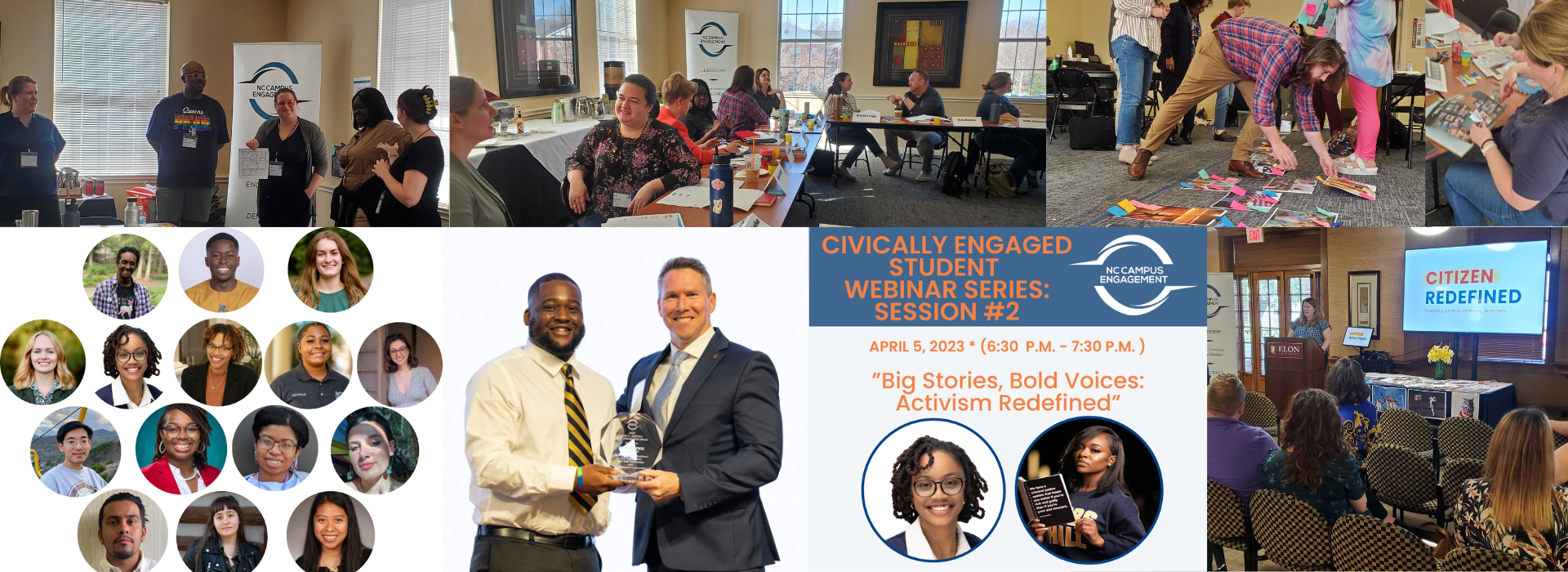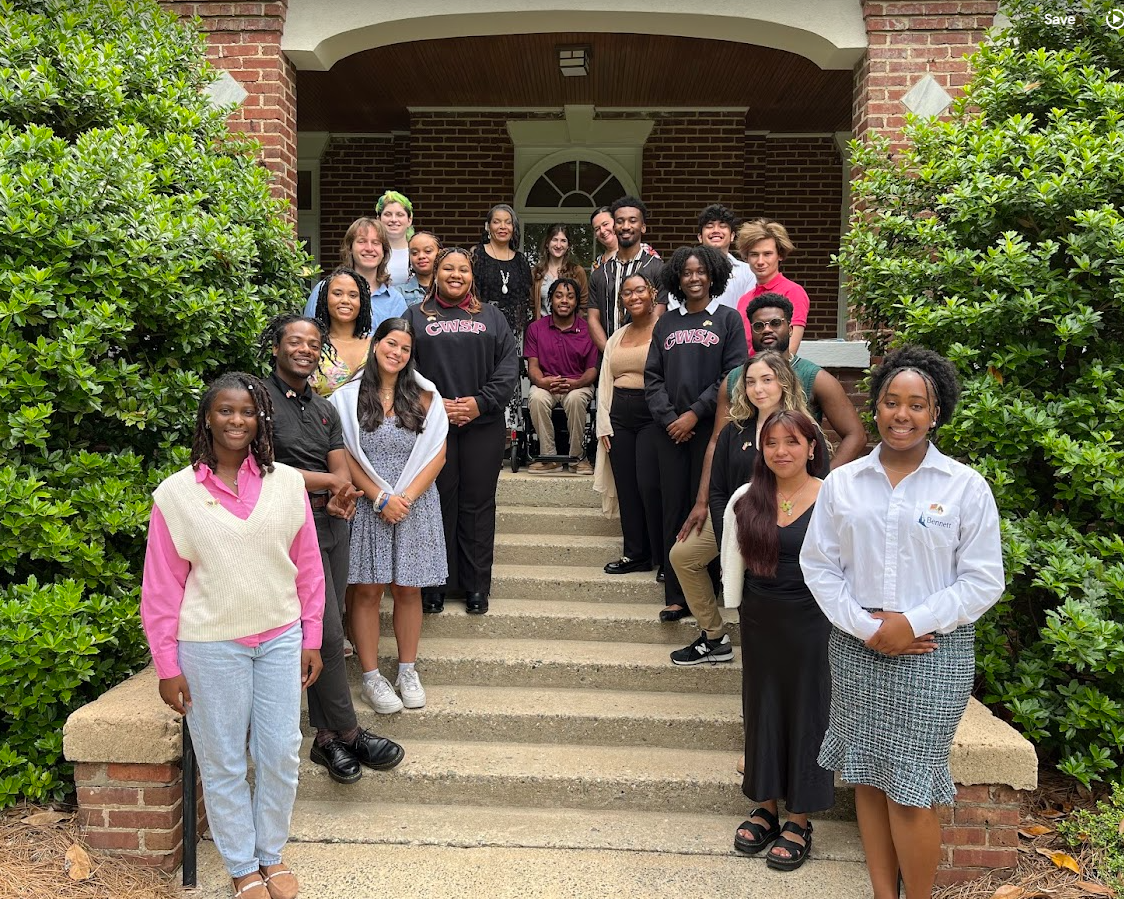
Civic Leadership Development
Civic Leadership
Student Leadership Awards
Since 2006, NCCE has acknowledged students who demonstrate outstanding civic leadership. In 2015 we added the Marshall Alternative Break Scholarship to fund student leadership during service trips.
Learn more about our awards under the Recognition menu or at the links below.
Community Impact Student Award (CISA)
Barnhill Civic Trailblazer Award
Marshall Alternative Break Scholarship
NC Civic Impact Fellowship
In fall 2023, NCCE launched the NC Civic Impact Fellowship. Exceptional student leaders are nominated, with support from their institution’s president/chancellor, to engage in an 18-month civic leadership initiative resulting in a civic Impact Project that will positively impact civic life on their campus. Civic Impact Fellows receive monthly project support and skill-development training throughout the fellowship.
Learn more about the NC Civic Impact Fellowship.
CSNAP Student Conference
We host the CSNAP (Citizenship, Service, Networking, and Partnerships) Student Conference biennially. This event, which was launched by a group of NC students and administrators in 1994, is NCCE’s oldest event and program. The event focuses on student civic leadership and showcases student leaders as workshop presenters and facilitators. We award the annual student awards during CSNAP. The next CSNAP will be held in fall 2025.
Learn more about the CSNAP Student Conference.
Student Hunger Ambassadors
Since 2018, NCCE has partnered with Food Lion grocery stores, and their Food Lion Feeds initiative to host the NC Collegiate Hunger Challenge. NCCE member campuses who join the Challenge select one to two students to serve as their Hunger Ambassadors. These students plan and implement activities and food drives to raise awareness about food insecurity, while competing with the other campuses for cash prizes. The winning campuses use the prize money to support their campus food insecurity initiatives. Visit the Challenge page to view the videos of the Ambassadors in action.

Citizen Redefined Camp
Citizen Redefined Camp is an overnight, week-long civic leadership experience where student leaders explore what it means to boldly show up for their campuses and communities as citizens.
Engaged student leaders have an extraordinary power–and responsibility–to affect change on campus, in the community, and in our nation. Citizen Redefined Camp, curated from the Citizen University Citizen Redefined curriculum, offers a highly immersive, hands-on opportunity for involved student leaders to reflect on, develop, and fully step into self-defined identities as citizens. In doing so, they graduate from camp prepared to pursue social change with a stronger sense of their power in within our national fabric. Students practice skills in topics relating to communication, critical analysis, civic culture, moral character, power, collaborative leadership, and service.

Summer 2024 Citizen Redefined Camp Graduates
NC Campus Engagement hosted two Citizen Redefined trainings in 2023, facilitated by staff from Citizen University. Administrators from 15 NCCE member campuses, and one community organization, were immersed in the Citizen Redefined curriculum with the intention that they would take components back to their campus for implementation.
